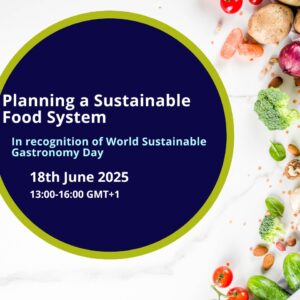INVESTIGATING THE CARBON FOOTPRINT AND INDUSTRIAL CONSIDERATIONS FOR BIO-NUTRIENTS AND CHEMICALS WITH APPLICATIONS IN SUSTAINABLE PRACTICES
Abstract
Bio-nutrients sourced from valorised food waste have the potential to be reintroduced into the market as part of the circular economy. With food waste accounting for around 6% of global greenhouse gas emissions, bio-nutrient extraction can play a key role in the valorisation of food waste. The use of bio-nutrients sourced in this manner allows for alternative material sourcing and production pathways in industry, ultimately reducing the overall carbon footprint (CFP). In particular, bio-nutrients have applications in the following sustainable technologies: hydroponics, insect farms, aquaculture, cellular protein production lines and sustainable packaging.
The extraction of bio-nutrients can be directed by enzymatic biocatalysis as an effective low CFP methodology compared with traditional production methods. For hydroponics, this can reduce the demand for imported fertiliser: the mean CFP of imported fertiliser from China is 1.87 greater than the CFP of European produced fertiliser. Additionally, bio-nutrients sourced this way can be used to supplement feed for insect farms and aquaculture by providing essential high value nutrients at a reduced CFP. Furthermore, cellular protein production can be supported with extracted amino acids from food waste. Finally, sustainable packaging such as biodegradable polylactic acid (PLA) can attain specific properties by integrating certain bio-nutrients into the manufacturing process. This review will focus on the associated CFP, costing and quality assurance for the prominent bio-nutrients and sustainable chemicals involved in these technologies.


